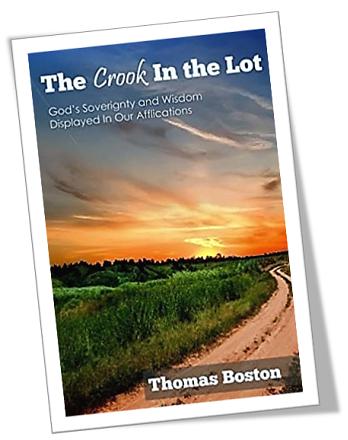9 Reasons Why You Should Read the Puritans
9 Reasons Why You Should Read the Puritans

Joel Beeke has written a helpful article titled, “Why You Should Read the Puritans.” In it, Beeke introduces the reader to Puritanism, suggests reasons the Puritans should be read, and makes many suggestions as to where a person should begin in their Puritan reading journey.
In this article, we’re taking excerpts from Joel Beeke’s article and summarizing his nine reasons why it will help you spiritually to read Puritan literature today:
1. Puritan writings help shape life by Scripture⤒🔗
The Puritans loved, lived, and breathed Holy Scripture. They relished the power of the Spirit that accompanied the Word. Their books are all Word-centered; more than 90 percent of their writings are repackaged sermons that are rich with scriptural exposition. The Puritan writers truly believed in the sufficiency of Scripture for life and godliness.
Do you want to read books that put you into the Scriptures and keep you there, shaping your life by sola Scriptura? Read the Puritans. Read the Soli Deo Gloria Puritan Pulpit Series. As you read, enhance your understanding by looking up and studying all the referenced Scriptures.
2. Puritan writings show how to integrate Biblical Doctrine into daily life←⤒🔗
For books that beautifully balance objective truth and subjective experience in Christianity; books that combine, as J. I. Packer puts it, “clear-headed passion and warm-hearted compassion” (Ryken, Worldly Saints, x); books that inform your mind, confront your conscience, and engage your heart, read the Puritans. Read Vincent Alsop’s Practical Godliness.
3. Puritan writings show how to exalt Christ and see His Beauty←⤒🔗
The Puritan Thomas Adams wrote:
Christ is the sum of the whole Bible, prophesied, typified, prefigured, exhibited, demonstrated, to be found in every leaf, almost in every line, the Scriptures being but as it were the swaddling bands of the child Jesus.
If you would know Christ better and love Him more fully, immerse yourself in Puritan literature. Read Robert Asty’s Rejoicing in the Lord Jesus.
4. Puritan writings reveal the Trinitarian Character of Theology←⤒🔗
The Puritans were driven by a deep sense of the infinite glory of a Triune God. When they answered the first question of the Shorter Catechism that man’s chief end was to glorify God, they meant the Triune God: Father, Son, and Holy Spirit.
If you want to appreciate each Person of the Trinity, so that you can say with Samuel Rutherford,
I don’t know which Person of the Trinity I love the most, but this I know, I love each of them, and I need them all.
Read John Owen’s Communion with God and Jonathan Edwards on the Trinity.
5. Puritan writings show you how to Handle Trials←⤒🔗
Puritanism grew out of a great struggle between the truth of God’s Word and its enemies. Reformed Christianity was under attack in Great Britain, much like Reformed Christianity is under attack today. The Puritans were good soldiers in the conflict, enduring great hardships and suffering much. Their lives and their writings stand ready to arm us for our battles, and to encourage us in our suffering. The Puritans teach us how we need affliction to humble us (Deut. 8:2), to teach us what sin is (Zeph. 1:12), and how that brings us to God (Hos. 5:15).

If you would learn how to handle your trials in a truly Christ-exalting way, read Thomas Boston’s The Crook in the Lot: The Sovereignty and Wisdom of God Displayed in the Afflictions of Men.
6. Puritan writings explain True Spirituality←⤒🔗
The Puritans stress the spirituality of the law, spiritual warfare against indwelling sin, the childlike fear of God, the wonder of grace, the art of meditation, the dreadfulness of hell, and the glories of heaven.
If you want to live deep as a Christian, read Oliver Heywood’s Heart Treasure. Read the Puritans devotionally, and then pray to be like them. Ask questions such as: Am I, like the Puritans, thirsting to glorify the Triune God? Am I motivated by biblical truth and biblical fire? Do I share their view of the vital necessity of conversion and of being clothed with the righteousness of Christ? Do I follow them as far as they followed Christ?
7. Puritan writings show how to live by Wholistic Faith←⤒🔗
The Puritans apply every subject they write about to practical “uses” — as they term it. These “uses” will propel you into passionate, effective action for Christ’s kingdom. Their own daily lives integrated Christian truth with covenant vision; they knew no dichotomy between the sacred and the secular. Their writings can assist you immeasurably in living a life that centers on God in every area, appreciating His gifts, and declaring everything “holiness to the Lord.”
If you would grow in practical Christianity and vital piety, read the compilation of The Puritans on Prayer, Richard Steele’s The Character of an Upright Man, George Hamond’s Case for Family Worship, Cotton Mather’s Help for Distressed Parents, and Arthur Hildersham’s Dealing with Sin in Our Children.
8. Puritan writings Teach the Importance and Primacy of Preaching←⤒🔗
To the Puritans, preaching was the high point of public worship. Preaching must be expository and didactic, they said; evangelistic and convicting, experiential and applicatory, powerful and “plain” in its presentation, ever respecting the sovereignty of the Holy Spirit.
If you would help evangelicals recover the pulpit and a high view of the ministry in our day, read Puritan sermons. Read William Perkins’s The Art of Prophesying, and Richard Baxter’s The Reformed Pastor.
9. Puritan writings show how to Live in Two Worlds←⤒🔗
The Puritans said we should have heaven “in our eye” throughout our earthly pilgrimage. They took seriously the New Testament passages that say we must keep the “hope of glory” before our minds to guide and shape our lives here on earth. They viewed this life as “the gymnasium and dressing room where we are prepared for heaven,” teaching us that preparation for death is the first step in learning to truly live (Packer, Quest for Holiness, 13).
If you would live in this world in light of the better world to come, read the Puritans. Read Richard Baxter’s The Saints’ Everlasting Rest and Richard Alleine’s Heaven Opened.

Add new comment